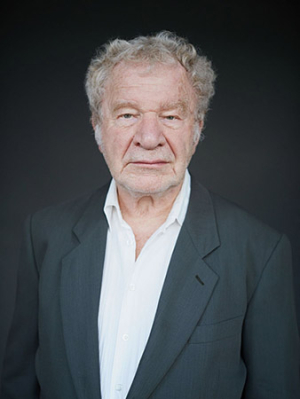Gallery
All Pictures (3)Biography
Michael Hanemann was born on April 8, 1945, in Überlingen. His grandfather was the renowned theater and silent film actor Albert Steinrück. From 1967 to 1970, Hanemann trained at the Westfälische Schauspielschule Bochum (now Schauspielschule Bochum) and made his stage debut in 1972 in the play "Evol" at the Theater Oberhausen. The following year, he appeared in his first minor television role in Klaus Emmerich's "Florian."
From 1974 to 1978, Hanemann was engaged at the Theater Bremen, and from 1980 to 1991 he mainly performed at Schauspiel Frankfurt, with additional engagements at the Staatstheater Wiesbaden (1984–1986) as well as other theaters.
Alongside his stage work, he frequently appeared in television productions. In 1977, Claus Peter Witt cast him in a key role as Schatow in the four-part Dostoevsky adaptation "Die Dämonen." In "Ami go Home oder Der Fragebogen von Ernst von Salomon" (1985), he played an American officer alongside Heinz Hoenig.
From the early 1990s, Hanemann appeared regularly in cinema and—especially—television, in both major and supporting roles. Notable appearances of the decade include a prosecutor in Doris Dörrie's "Happy Birthday, Türke" ("Happy Birthday!," 1992), a member of the investigation team in the crime series "Einsatz für Lohbeck" (1994–95), a psychologist in the "Tatort" episode "Engelchen flieg" (1998), and the kindly teacher Dr. Bremser in "Pünktchen und Anton" ("Annaluise and Anton," 1999). At the same time, he held a stage engagement at the Schauspielhaus Zürich from 1996 to 2000.
Over the years, Hanemann increasingly focused on film and television. He was part of the ensemble in Tom Tykwer's "Der Krieger und die Kaiserin" ("The Princess and the Warrior," 2000) and Joseph Vilsmaier's "Leo und Claire" ("Leo and Claire," 2001). He played a grumpy janitor in Marco Petry's "Schule" ("No More School") a pastor in Lars Büchel's "Erbsen auf halb 6" ("Peas at 5:30," 2004), and Till Schweiger's prospective father-in-law in Anno Saul's "Wo ist Fred?" ("Where Is Fred?," 2006). He had a central role in Till Endemann's "Kometen" (2005) as a passionate amateur astronomer.
On television, Hanemann took on numerous often substantial roles in series such as "Tatort," "Pfarrer Braun," "Inga Lindström," and "Lutter," as well as in TV films. Highlights include playing a field marshal in "Die Stunde der Offiziere" (2004), Caspar Schiller in the biopic "Schiller" (2005), and the best friend of Götz George's lead character in "Meine fremde Tochter" (2008).
In the comedy series "Allein unter Bauern," Hanemann had a regular leading role as the husband of a village doctor. In the six-part TV series "Der Schwarzwaldhof" (2007–2010), he appeared as the father-in-law of a hotel heiress. His longest-running and most popular television role was in "Mord Aussicht," where he played a police officer—later retired—from 2008 to 2023.
In cinema, Hanemann appeared only occasionally from the 2010s onward, including a small role alongside Elmar Wepper in "Grüner wird's nicht," ("As Green as it Gets," 2018) and as a university professor in Dominik Graf's "Fabian oder der Gang vor die Hunde" ("Fabian - Going to the Dogs," 2021). He played a lead role in "Der Kuss des Grashüpfers" ("The Kiss of the Grasshopper"), portraying the terminally ill father of a writer whose life spirals into a surreal whirlwind. The film premiered in the Berlinale Forum in 2025 and was released in German cinemas that August.
Michael Hanemann, whose filmography spans well over 100 titles, lives in Berlin.
